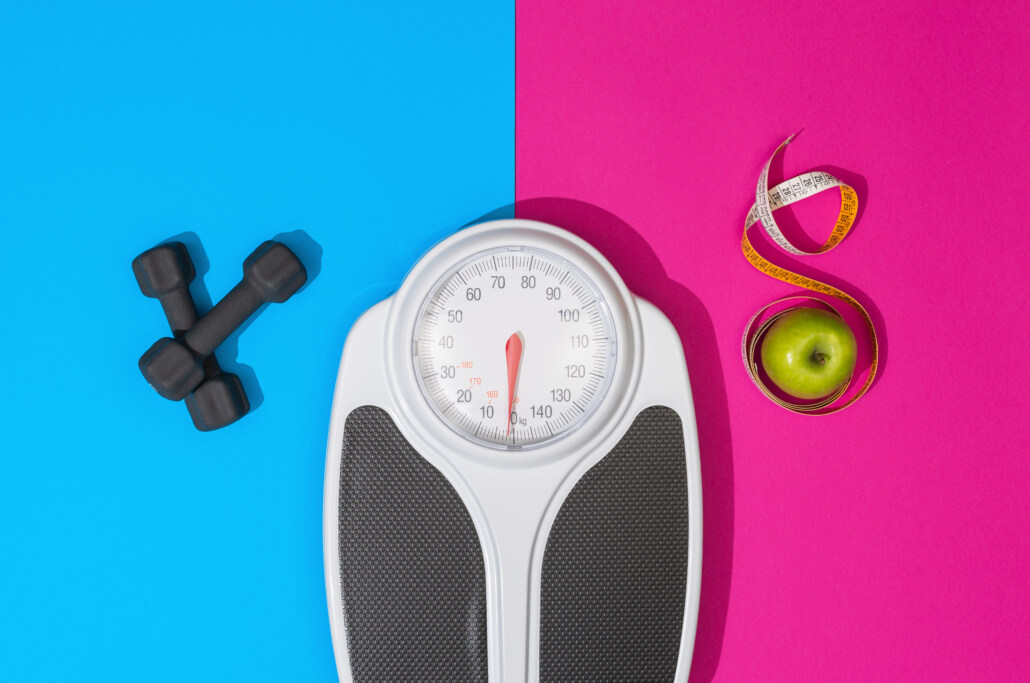Is Reformer Pilates Good for Weight Loss?
As a dietitian with a passion for holistic health and wellness, I often get asked about the best ways to lose weight and maintain a healthy lifestyle. One of the questions that frequently comes up is whether Reformer Pilates is effective for weight loss. The short-term answer is yes, any form of exercise compliments a healthy diet and will aid weight loss!
Many individuals turn to Reformer Pilates after finding that traditional gym workouts are either too intense on their joints or simply not enjoyable. For example, some people who struggle with high-impact exercises due to joint pain find that the controlled movements and resistance training in Reformer Pilates alleviate their discomfort while improving muscle tone and overall strength.
Others seek a workout that can help manage stress while aiding in weight loss. They discover that the focus on breath and mindful movement in Reformer Pilates provides a much-needed mental break from their hectic lives, contributing to their overall well-being and weight loss journey.
In this article, I will clarify what Reformer Pilates is, its benefits, how long it takes to see results, and some weight loss advice. I’ll also explain why Me for Me is the best spot to begin your road to a healthy you.
What is Reformer Pilates?
Reformer Pilates is a type of workout that use a specialist piece of equipment known as a reformer. The Reformer is comprised of a sliding carriage, springs, and numerous attachments that offer resistance and support for a variety of workouts.
Unlike traditional mat Pilates, Reformer Pilates provides a more dynamic and intensive workout that targets numerous muscle groups at once. Reformer Pilates is extremely flexible in it’s approach and is quite appealing for a fuller workout.
It may be tailored to any fitness level, from beginner to advanced practitioner. The adjustable resistance allows for a personalised workout that can be as easy or as difficult as needed. This makes it a fantastic choice for those who want to improve their strength, flexibility, and overall fitness.
What are the benefits of Reformer Pilates?

(
Reformer Pilates offers a myriad of benefits that go beyond weight loss. It uplifts flexibility, builds core strength, and improves posture, contributing to overall physical fitness and well-being. Additionally, the controlled movements in Reformer Pilates help in reducing stress and increasing mental clarity, making it a holistic approach to health.
Here are some of the key advantages:
Improved Core Strength: One of the main goals of Reformer Pilates is to strengthen the core muscles. A strong core not only boosts your overall fitness, but it also improves your posture and lowers your chance of back problems.
Greater Flexibility: Reformer Pilates’ controlled movements and stretches help to lengthen and tone muscles, resulting in greater flexibility and range of motion.
Increased Muscle Tone: The Reformer’s resistance promotes lean muscle mass, giving you a toned and sculpted appearance.
A Better Posture: Focuses on optimal alignment and body mechanics, which can lead to improved posture and less strain on the spine.
Stress Relief: The focused and controlled nature of Reformer Pilates can assist to reduce stress and promote relaxation, thereby improving general mental health.
Injury Prevention: Improves strength, flexibility, and balance, which can assist to prevent injuries and boost sports performance.
How long does it take to see results with Reformer Pilates?
The time it takes to see results with Reformer Pilates varies depending on a number of factors, including your initial fitness level, workout frequency, and overall lifestyle. Still, many people notice gains in their strength, flexibility, and posture after a few weeks of consistent practice.
To lose weight, I suggest combining Reformer Pilates with a healthy diet and other forms of exercise, preferably cardiovascular exercise. While Reformer Pilates might help you build muscle while increasing your metabolism, weight loss is ultimately about creating a calorie deficit. This entails burning more calories than you consume. Consistency is fundamental.
Your goal or aim should be to practise Reformer Pilates at least 2-3 times every week, along with a patient mind-set for progress. This is should be a gradual and sustainable process, with a focus on your overall heath rather than the number on sales.
Tips for weight loss

Here are some tips to help you on your weight loss journey:
Mindful Eating:
Pay attention to your hunger and fullness cues and aim to eat without distractions. This can help you make better dietary choices and avoid overeating.
Learn more about mindful eating in our Mindful Eating article.
A Balanced Diet:
Maintain a well-balanced diet rich in nutrient-dense foods. Try to fill half of your plate with veggies, a quarter with lean protein, and a quarter with nutritious whole grains.
Include a variety of colourful veggies to make sure you get enough vitamins and minerals, and choose lean meats like chicken, fish, tofu, or lentils. Choose whole grains like brown rice, quinoa, or pasta to provide ongoing energy and fibre, which promotes general health and well-being.
Consistent Exercise:
In addition to Pilates for weight loss, include cardio and strength training to burn calories and develop muscle.
Engage in regular cardiovascular activities like running, cycling, or swimming to boost your heart rate and burn fat. Compliment these with strength training exercises such as weightlifting or resistance band workouts to build and tone muscle, for your overall fitness and metabolism.
Stay Hydrated:
Drinking plenty of water will help you feel satisfied and energetic. Aim for at least eight glasses of water per day.
Carry a reusable water bottle with you to ensure you can sip throughout the day, and set reminders if needed. Proper hydration aids in digestion, supports metabolism, and helps your body function at its best, making it easier to maintain your fitness goals.
Get Enough Sleep:
A lack of sleep can affect your metabolism and boost the need for unhealthy foods. Aim for 7-9 hours of quality sleep per night.
Establish a consistent sleep schedule by going to bed and waking up at the same time every day, even on weekends.
Create a relaxing bedtime routine and ensure your sleep environment is comfortable and free of distractions to improve the quality of your rest, supporting better overall health and weight management.
Common FAQ’s

Can I lose weight with a Pilates reformer?
Yes, you can lose weight using a Pilates Reformer if combined with a suitable diet. As a qualified dietitian, I’ve found that including Pilates reformer sessions into your workout routine can help you lose weight.
The reformer exercises assist to build muscle, improve posture, and increase general body strength, all of which raise your metabolism. When paired with a healthy diet and a steady workout plan, Pilates Reformer can help you lose weight.
Is Pilates Reformer better than cardio for weight loss?
Both Pilates reformer and cardio have distinct benefits, and the most effective method is frequently mixing both throughout your workout routine.
The Pilates reformer is great for developing core strength, increasing flexibility, and boosting muscle tone, all of which contribute to a better resting metabolism.
Cardio workouts, such as jogging or cycling, are particularly good at burning calories quickly and increasing cardiovascular health.
From a professional standpoint, combining the muscle-toning benefits of Pilates reformer with the calorie-burning effects of cardio results in a balanced and holistic approach to weight management.
How many calories do you burn in 60 minutes of Pilates Reformer?
The number of calories burned during a Pilates reformer a 60-minute session varies based on the intensity of the workout and your personal characteristics such as weight and fitness level.
An hour-long workout will typically burn between 250 and 450 calories.
While this is less intense than high-intensity cardio workouts, the Pilates reformer’s strength-building and muscle-toning effects contribute to long-term calorie burn, making it an excellent addition to your weight loss and fitness routine.
Why Me For Me?
At Me For Me, we believe in a holistic approach to health and wellness. As an experienced and practising dietitian, I want to help you achieve your health goals in a supportive and nurturing environment.
We offer personalised programs tailored to your individual needs and goals. Whether you’re looking to lose weight, improve your fitness, or simply feel better in your own skin, we have a program for you.
With a holistic approach to health, focusing on the mind, body, and spirit. Our programs include a combination of nutrition, exercise, and mindfulness practices to help you achieve optimal well-being.
Reformer Pilates can be an effective tool for weight loss when combined with a balanced diet and other forms of exercise. It offers numerous benefits, including improved core strength, flexibility, and posture.
At Me for Me, we’re here to support you on your journey to a healthier and happier you. So why wait? Start your journey with us today.
Take care of your body
Monique X




